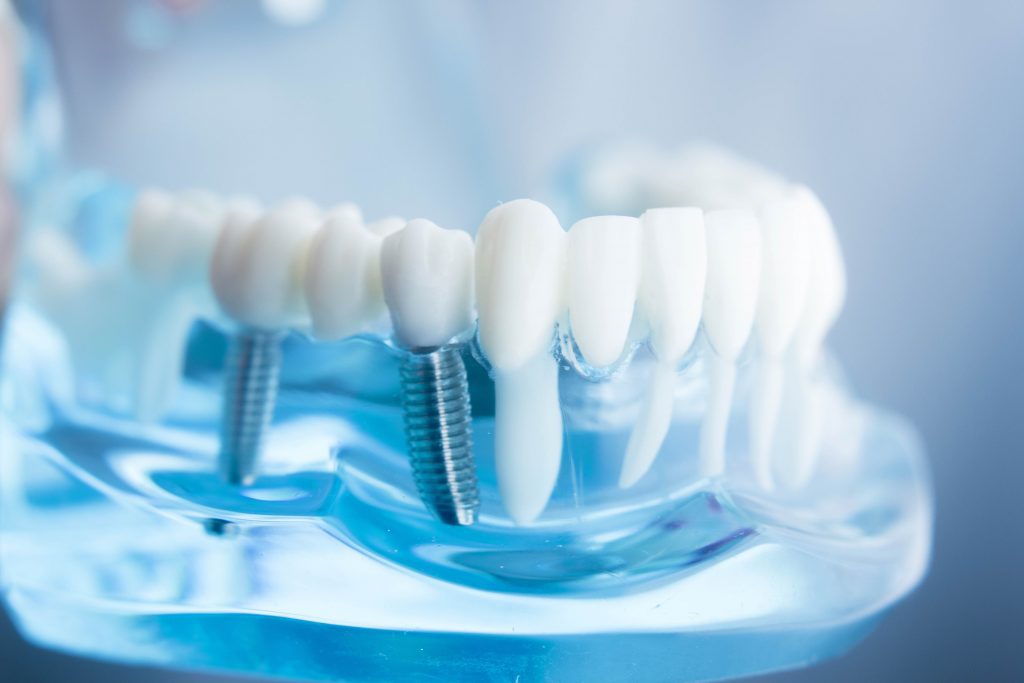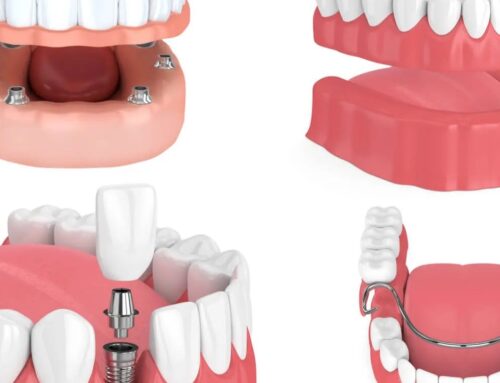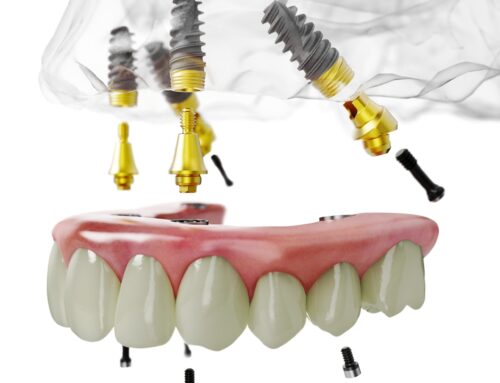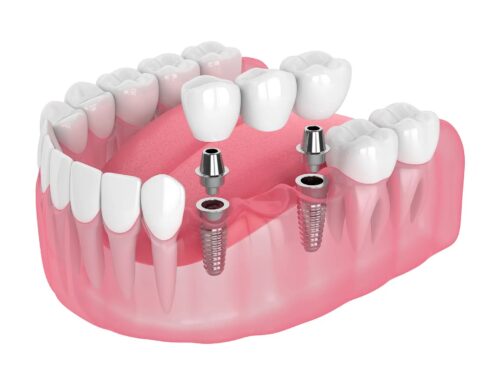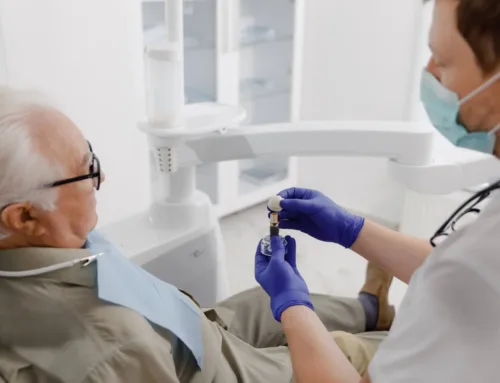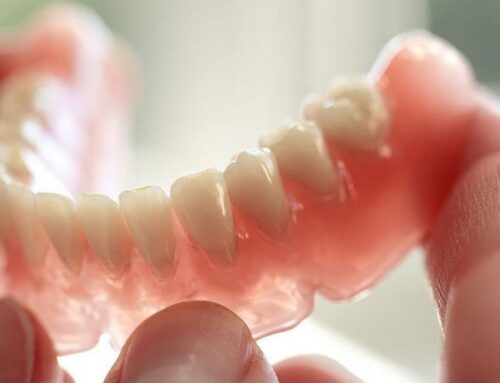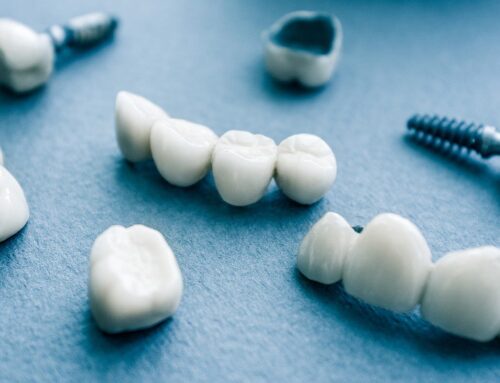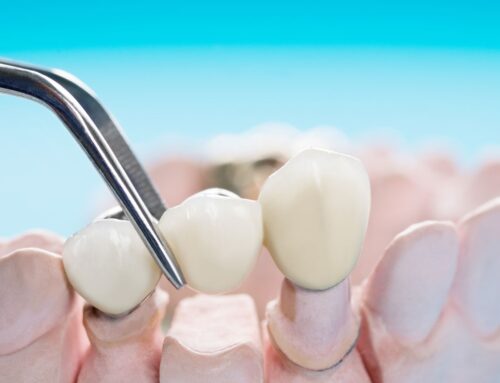Dental Implants Offer Benefits to Patients in a Very Wide Age Range
Despite what many people may believe, dental implants are not just for the elderly.
There are many reasons why a person may lose a tooth at some point in their lives, and not all of them occur when the patient is in their elder years. Some of these reasons relate to other oral health issues that can be experienced at any age and may require that a tooth be extracted, while others are related to accidental impacts that can’t be anticipated.
Regardless of the specific reason for the lost tooth, the reality is that it can happen at any age and it should be corrected in order to avoid any further oral health problems in the future. This is why dental implants are so beneficial to a wide range of patients at all ages.
And dental implants aren’t to be confused with dentures, and the term doesn’t automatically have to refer to implants for all your teeth. Dental implants can be used for one or more teeth.
In this article, we’ll be exploring some of the instances where a tooth may be lost, as well as how dental implants work and the benefits they offer.
Let’s begin with some of the most common reasons that you may experience a lost tooth regardless of your age.
Reasons for Tooth Loss at Any Age
Tooth Loss from Accidents
The first most common reason for a lost tooth that is not a result of age-related factors is a lost tooth due to an accidental impact. Any sudden impact to the mouth or jaw may cause a tooth to become loose in the jaw or even to fall out if the impact is severe enough. Some examples of accidents that can cause lost teeth include a slip or trip and fall, a vehicle accident, or a physical fight.
Tooth Loss from Sports
Another leading cause of tooth loss is impacts related to physically demanding sporting activities. Sudden impacts are common in many sports, including hockey, football, lacrosse, rugby, and more.
In addition, accidental impacts in sports can also occur, even if they are not a typical contact sport. An errant swing from a tennis racket can dislodge a tooth just as easily as a body-check on the hockey rink. To minimize the risk associate with sporting events, you should always wear an effective mouthguard.
Tooth Loss from Oral Health Conditions
The next reason that a patient at any age may lose a tooth is as a result of another oral or dental health condition. For example, excessive tooth decay may necessitate the removal of a tooth. Other conditions that often result in lost teeth include gum recession, gum disease and periodontitis, which cause the gum tissue supporting the teeth to weaken. Poor nutrition, smoking, and other health conditions can also result in lost or loose teeth.
As you can see, there are many different reasons for a tooth to become lost that don’t have anything to do with how old you are. Fortunately, lost teeth are easier than ever to fix thanks to the advancements that have been made in dental implants and the methods of treatment. Let’s now look at how dental implants work to replace a lost tooth.
How Dental Implants Work
Dental implants are actually quite simple in their design and methodology, but don’t let that simplicity overshadow the fact that there are decades of advanced research and testing behind modern dental implants. Today, dental implants are made from extremely durable materials designed to last a lifetime and are engineered to be identical in appearance to your natural teeth. The result is a smile that looks perfect and gets your mouth back to full function.
A single dental implant consists of three main parts; the fixture, the abutment and the prosthesis (crown). The fixture is typically made from a metal or composite material engineered to provide optimum fusion to human bone, providing a secure and permanent connection between the implant and your jaw.
The abutment is the portion of the fixture that connects directly to the prosthesis, which is also known as the crown and is the visible portion of the implant. The prosthesis/crown is customized in shape and colour to match your natural teeth. The result is a perfectly matched implant that looks completely natural with the rest of your teeth.
The process of receiving a dental implant is a simple one, and generally takes only about an hour for your implant to be placed. Once placed, it takes about 4-6 months for the surrounding area to completely heal and the bone to grow and fuse to the fixture, which is a process known as osseointegration. Once completed, you will now have a permanent solution to your lost tooth.
In addition to being a simple and effective solution to replacing a lost tooth, dental implants also offer many advantages when compared to other treatment options.
One of the problems that a lost tooth presents to your oral health is the potential for loss of bone density in the area surrounding the missing tooth. This occurs because the bone that surrounds the spot where your natural tooth used to be no longer has the same pressure and stimulation that it would with the tooth still in place. Over time, this causes the bone to gradually weaken and lose density.
Dental implants overcome this problem by fusing directly in to the bone where the missing tooth used to be. By attaching to the bone in the same manner as a natural tooth, the implant mimics the same pressure and stimulation that occurs in the bone, thereby preventing the loss of bone density.
In addition, dental implants are also very easy to care for, requiring little more than what you typically would do as part of your normal dental hygiene routine. Brushing, flossing, and oral rinses are all still valuable oral care habits for dental implants, and you will of course be required to stick to a regular schedule for checkups and hygiene treatments with your dentist to monitor things and ensure your dental health remains good.
Dental implants are also much more comfortable for patients than the alternative methods of treating a lost tooth. Once the implant has been placed and healed, the patient can go about all their normal activities without any worry that their implant will become loose or uncomfortable.
What to Do If You’ve Lost a Tooth
In the event that you or someone you love has lost a tooth, either by accident or due to another oral health problem, don’t delay in starting the process of having the tooth replaced. The longer you wait before addressing the problem of a missing tooth, the more at risk you become for oral care issues that stem from a lost tooth.
When a tooth is lost, call your dentist immediately and arrange for an appointment as soon as possible. Especially for lost teeth as a result of an accident or impact, it may be possible to have the natural tooth put back in place and allowed to heal, so time is of the essence.
For a complete guide on what to do with a lost tooth from an accident, refer to our article on When to Make an Emergency Trip to the Dentist.
If you would like to learn more about dental implants and whether or not they are an ideal solution for your dental health treatment, contact the team at Georgian Dental® today and arrange for a free no-obligation consultation.
Our professionals will offer guidance and answers to all your questions.
Appointment Request
If you’re interested in any of our procedures, and would like to meet with one of our dentists to discuss options, costs and get additional information, complete this short form and we’ll give you a call to arrange for a no-obligation appointment at our Barrie clinic.
